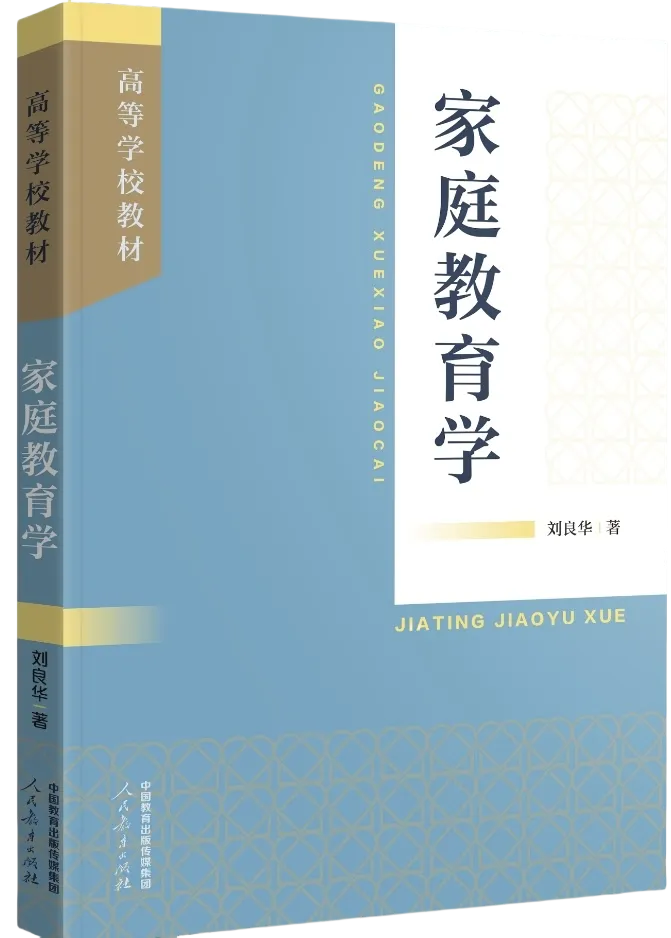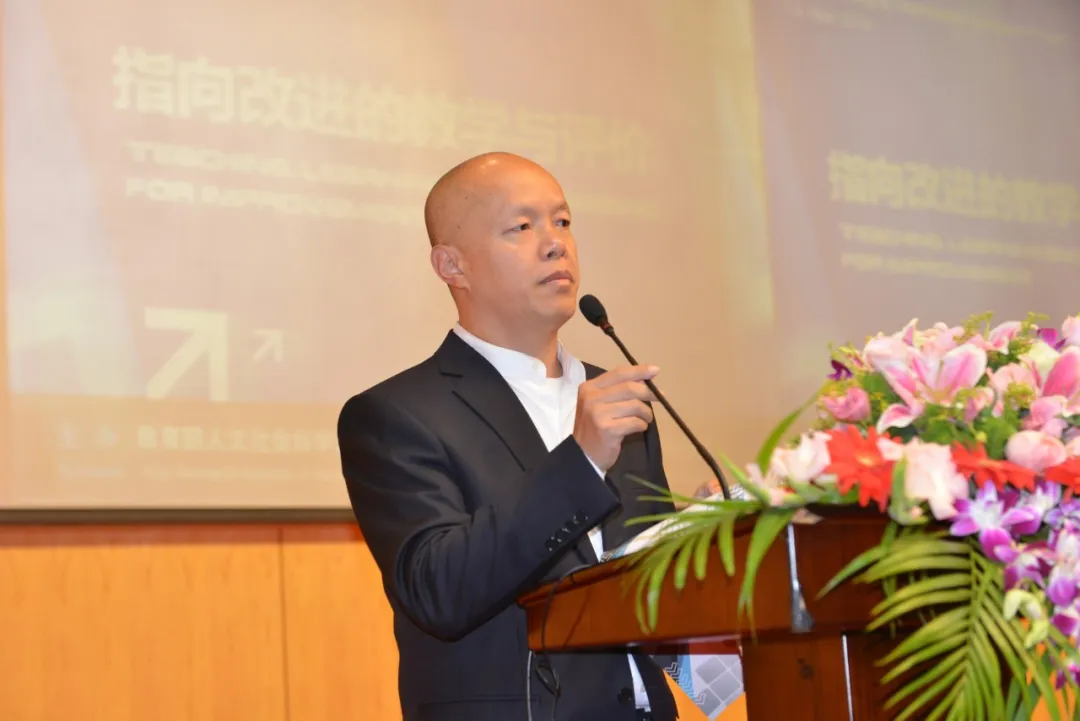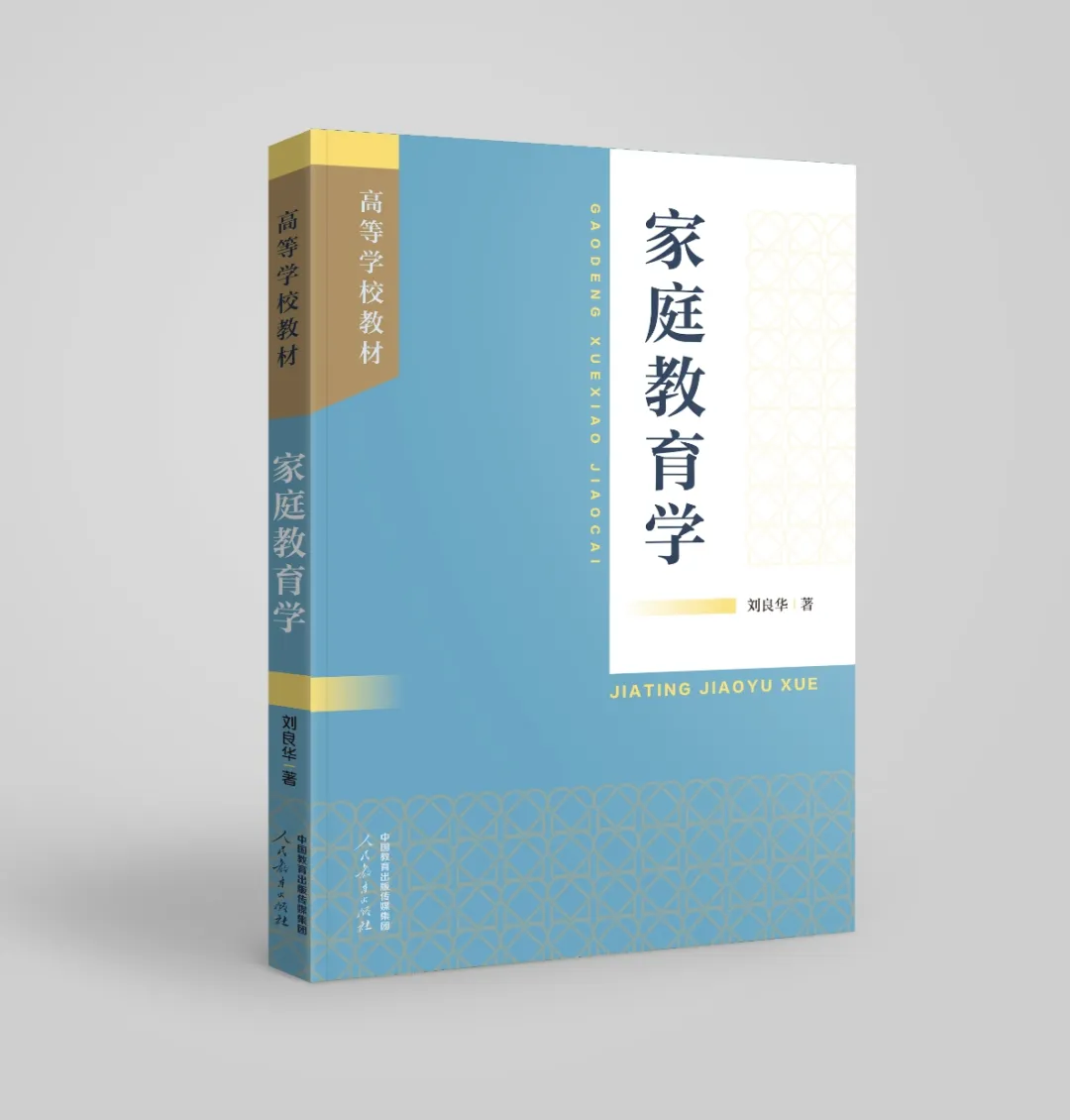ICI Academic ║ Professor Liu Lianghua's main textbook for the compulsory course "Family Education" in colleges and universities has been published
2025-07-03
Professor Liu Lianghua's new book, "Family Education," has been officially published by the People's Education Press. This book serves as the primary textbook for the compulsory "Family Education" course in universities and is suitable for undergraduate and graduate students in various sub-fields within the broader field of education. It can be used as a general education or elective textbook in universities, and is also suitable for primary and secondary school teachers, parents, and parents-children reading.

1. Author

Liu Lianghua is a professor and doctoral supervisor at the Institute of Curriculum and Instruction at East China Normal University, Executive Deputy Editor-in-Chief of "Global Education" , Principal of the Guangzhou Haizhu District No. 2 Experimental Primary School Education Group, and President of the Guangdong Modern Family Education Research Institute. His primary research areas are family education, educational philosophy, and curriculum and pedagogy. He has published monographs such as "Family Education," "Philosophy of Education," "Educational Research Methods," "Xingfa Teaching Theory," "School-Based Action Research," "School-Based Teaching Research," "New Parents School," and "Teacher Professional Growth," as well as over 100 papers.
Traditional family education often focused on sharing personal parenting experiences as "parenting tips." Modern family education is gradually moving towards family education philosophy and family education science. This book strives to offer reflections and arguments, including family education philosophy and family education science. To this end, this book, drawing on extensive citations from relevant literature, offers either theoretical perspectives on family education or empirical research reports on this topic. This ensures that nearly every page of the book contains references to relevant materials, with full citations provided in footnotes. Key references presented in the footnotes serve as "Extended Learning Resources" at the end of each chapter.
Furthermore, reflections on family education can also take the form of narrative research on family education. Narrative research on family education reflects on family education through the form of literary stories, and the corresponding discipline is family education literature. Existing family education studies have already produced masterpieces such as "Emile," and future family education studies will increasingly prioritize family education literature.

This book comprehensively discusses the fundamental issues of the discipline of "family education," integrating theory with practice. Drawing on research findings on family education from ancient and modern times, both in China and abroad, particularly renowned survey and experimental research reports, as well as cutting-edge academic knowledge, it introduces many new perspectives and methods on modern family education. The book, consisting of a preface and nine chapters, is broadly divided into three parts:
Part I, the preface and chapters 1-5, primarily discusses fundamental theoretical issues in family education, such as the basic concepts of family education and family pedagogy, the significance and role of family education, its influencing factors, its theoretical foundations, and its goals, tasks, principles, and methods. This part focuses on three topics:
First, the impact of family relationships (primarily parent-child, husband-wife, and sibling relationships) on children's development, focusing on four types of parent-child relationships and their parenting styles: authoritarian, democratic, indulgent, and indifferent.
Second, the challenges that social development presents to family education. For example, the village that once devoted its entire village to raising a single child has disappeared or is disappearing. As family conditions improve, more and more children are losing the experience of hard work and the pressure to acquire knowledge, leading many to experience anxiety and even depression. The development of modern technology has provided both beneficial learning resources and adverse effects on children's development.
Third, the three theoretical perspectives, three development goals, and three educational principles of family education research. The three theoretical perspectives are natural education, subject-oriented education, and active education; the three goals are cultivating habits, strengthening personality, and strengthening the body; and the three educational principles are combining strictness and kindness, teaching by example, and teaching according to individual aptitude.
Part Two, Chapters 6-8, discuss the main tasks, content, and specific methods of family education in the preschool, elementary, and middle school stages, respectively, from a practical and operational perspective.
The preschool stage focuses on providing children with three sensory qualities: emotional, language, and movement, through a loving and free-spirited approach.
The elementary stage focuses on providing children with a disciplined and rigorous education that emphasizes understanding, balances civility and martial arts, and balances work and rest.
The middle school stage focuses on further developing children's willpower, building on this foundation of sensory and rule-based education. For middle school children, parents should gradually let go, allowing them to develop willpower qualities such as self-confidence, self-learning, and autonomy, as well as the associated social emotions, through participation in decision-making, trial and error, and the pursuit of passion.
Part Three, Chapter 9, analyzes and summarizes the essence of family education thought in Chinese family precepts and traditional classics, focusing on three categories:
First, ancient Chinese family precepts, represented by the Family Precepts of Confucius, the Qian family, and the Su family;
Second, modern Chinese family letters or precepts, represented by the family letters of Zeng Guofan, Liang Qichao, and Fu Lei;
Third, popular elementary school family precepts, represented by the "Three Character Classic," "Enlarged Collection of Wise Sayings," and "Chinese Idioms."
For the convenience of both teachers and students, each chapter includes exercises and supplementary learning resources. Several chapters include QR codes that allow readers to scan and view short videos on family education created by the author.